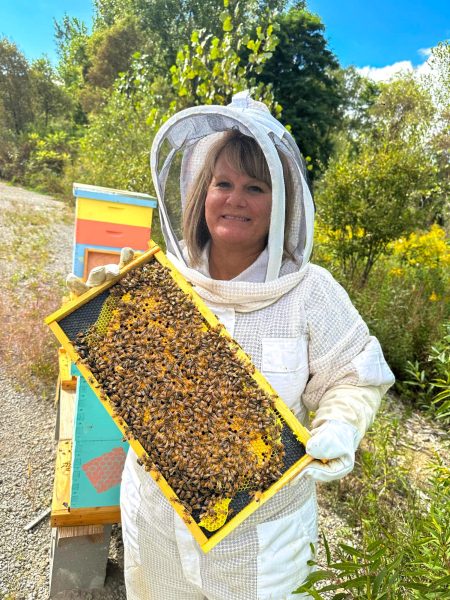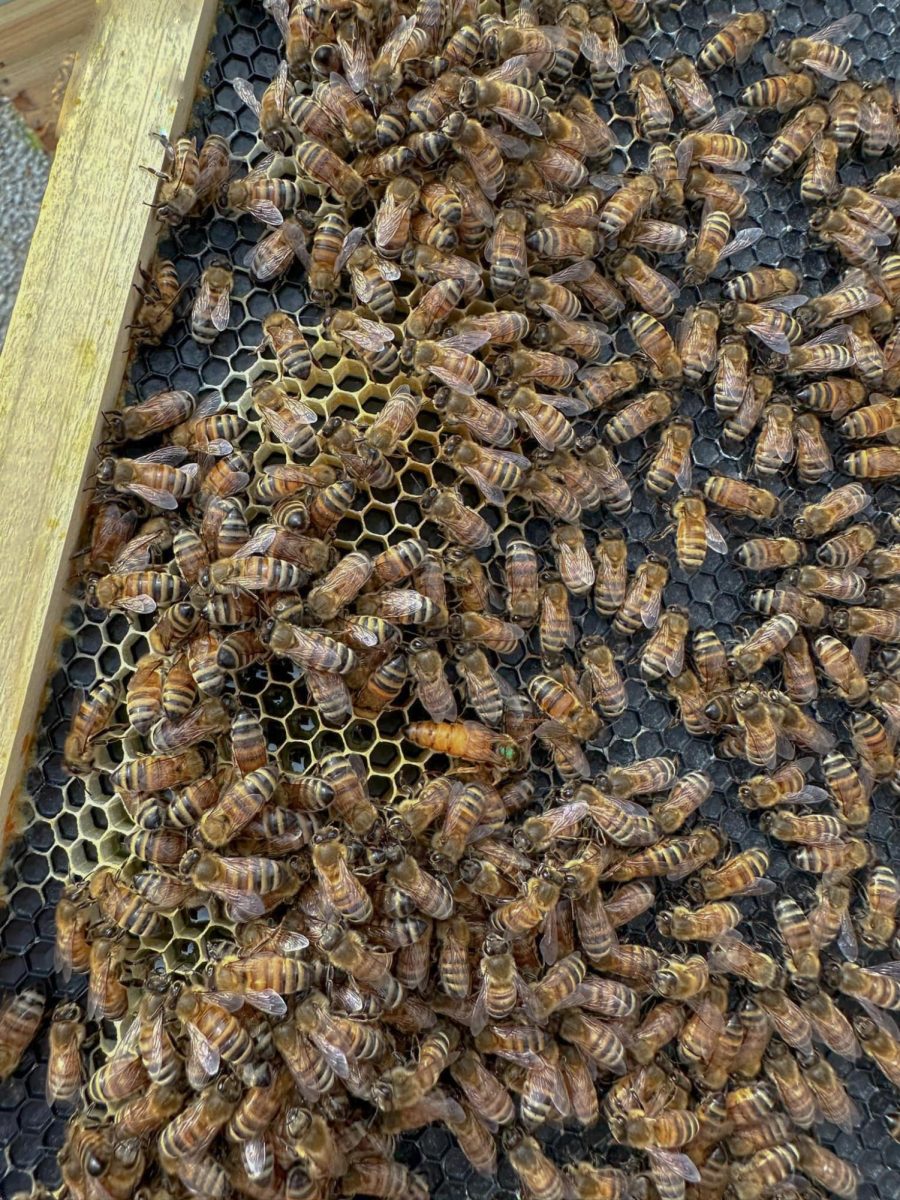In the United States alone beekeepers have lost about 30% of their colonies every year since 2006. This dramatic decline is slowly leading to many species being deemed as threatened or endangered. According to PSU.edu, this is because of the ongoing problem of climate change, and increased land use.
“Bees are very good representatives of larger issues like how to live thoughtfully in the world to maintain biodiversity and resilient environmental systems,” said Christina Grozinger from Penn States Center for Pollinator Research.
According to Penn State University’s Grozinger’s Lab, nearly 75% of major food crops depend on honey bees and other pollinators. That is, every one in three bites we eat has been affected by bees. Bees pollinate 15 billion dollars worth of crops in the United States, while honeybees produce enough honey to equal about 3.2 million dollars.

According to Britanica.com, if bees go extinct, the plants pollinated by bees will lay fewer seeds, causing ecosystems to fall and other things to become extinct. Without plants, the human diet would dramatically shift, and crops would be more expensive, less productive, and of poor quality.
Northwest High School (NWHS) science teacher Rhonda Drumm believes beekeeping is more than a hobby; it is her way of giving back to the environment. She is also very passionate about bees. After learning about it from her brother, Drumm is in her second year of beekeeping. In the summer of 24, Drumm started with two hives. As summer progressed, her hives grew, and she had roughly 300,000 bees. This number increased due to breeding.
“I would love to get my whole family into beekeeping, it is just so fun,” said Drumm.

Drumm is concerned about the rapid decline of the bee population in the future. However in contrast to PSU.edu, Drumm believes pesticides are more harmful to bees than climate change, due to farmers spraying their crops with pesticides to keep pests away, however, bees are not pests, PSU.edu confirms this.
Varroa mites and farmer pesticides are a challenge for honey beekeepers such as Drumm because they kill the bees, and the fewer bees the less honey, leading to those who sell the honey unable to keep up with demand.
“And then there is the Varroa mite, there are just so many things that kill the bees,” said Drumm
Overall the bee decline is not just affecting beekeepers such as Drumm, but our produce as well. Change is well needed and things like beekeeping, and bee-safe pesticides are just a few of the things possible. Bees are not pests but needed pollinators.


